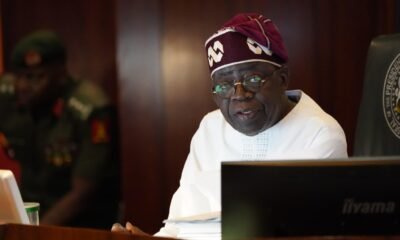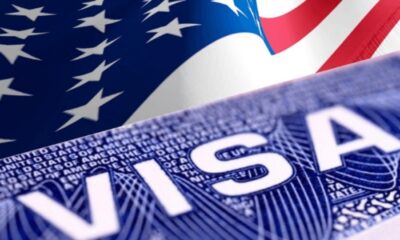FEATURED
Trump’s Genocide Claim: Unilateral US Military Incursion Could Deepen Nigeria’s Instability – Ofehe, Dutch-Nigerian Diplomatic Consultant
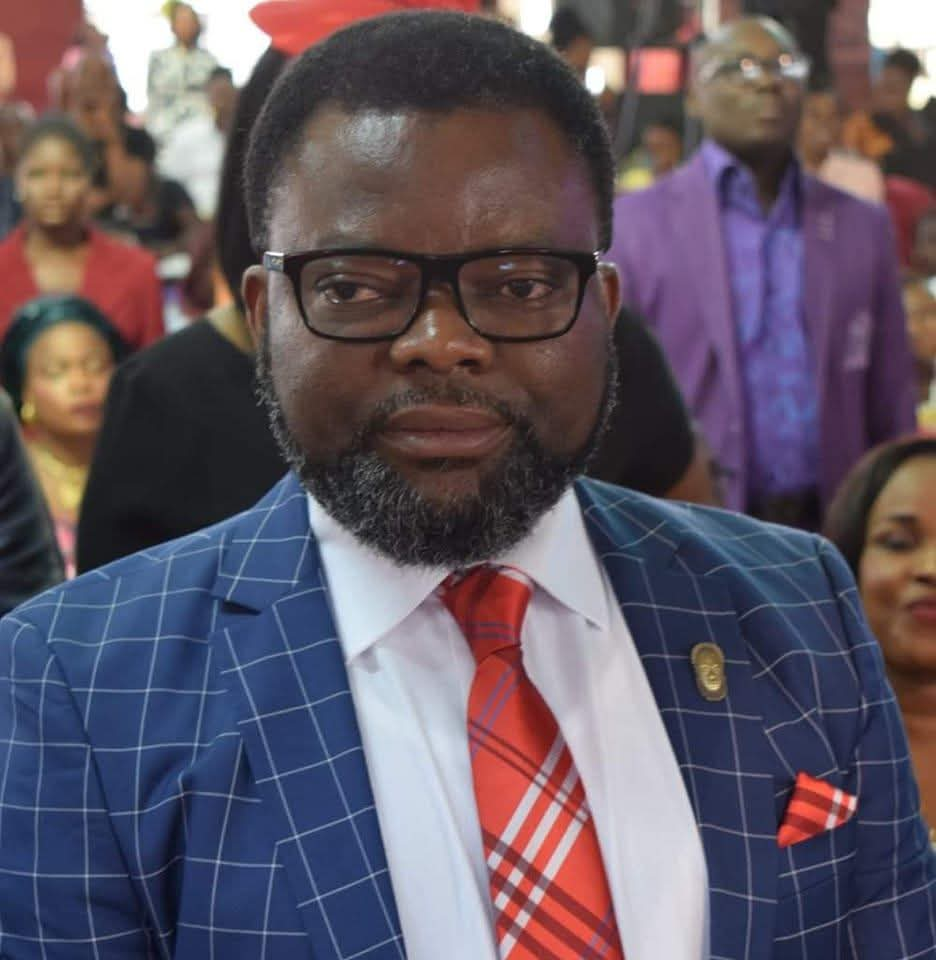
- Lists how Nigeria can escape CPC tag
- Says alleged terrorists attacks more than a religious conflict
- Foreign intervention could backfire
By Joe Obukata Ogbodu
Nigerian-Dutch environmental rights activist and diplomatic consultant, Comrade Sunny Ofehe, has said that any external military incursion against Nigeria over Christian Genocide allegations, could fuel nationalist backlash, empower extremist propaganda about “Western crusaders,” and complicate regional security efforts.
Ofehe, the CEO of Netherlands based Hope for Niger Delta Campaign (HNDC), a non-profit organization, is known for his advocacy for minority rights, particularly in Nigeria’s oil-rich Niger Delta region.
Since 2011, he has regularly addressed the United Nations Forum on Minority Issues in Geneva, advocating for the rights of Niger Delta minorities. He has also participated in events organized by the Unrepresented Nations and Peoples Organization (UNPO), the Italian Senate and engaged with the European Parliament, European Council, and European Commission.
Ofehe has been a prominent speaker at international forums such as the International World Water Day and the Inter Eco Forum Conference in Spain. In 2021, he collaborated with former Dutch MP Harry van Bommel to organize training for Nigerian Senate Committee members in the Netherlands.
In this exclusive interview, Ofehe, sheds light on Nigeria’s ongoing security crisis and the rising tensions around potential foreign military intervention.
Ofehe warned that any external incursion, especially without Nigeria’s consent, could backfire, fueling nationalist backlash and extremist propaganda. He emphasizes that Nigeria’s insecurity is a complex, multi-faceted crisis rooted in governance, resource competition, and ethnic tensions, rather than solely religious persecution.
Ofehe also spoke about international responses, highlighting China’s principled stance on sovereignty, and warns against simplistic narratives that frame Nigeria’s plight as a “Christian issue.”
He advocates for strengthened domestic reforms and international cooperation as the path to lasting peace and stability, urging Nigeria’s leadership to pursue diplomatic strategies that rebuild trust and protect citizens’ rights.
Excerpt:
Do you agree that Christians are singled out for terrorist attacks in Nigeria?
The question of whether Christians are singled out for terrorist attacks in Nigeria is both sensitive and complex. While the evidence overwhelmingly shows that Christians suffer disproportionately from violence in parts of the country, the motivations behind these attacks are often intertwined with ethnic, political, and economic tensions that extend beyond religion alone.
Over the past decade, Nigeria has faced multiple crises such as terrorism from Islamist groups such as Boko Haram and ISWAP in the northeast, violent clashes between farmers and herders in the Middle Belt, and widespread banditry in the northwest. Within this context, the Christian communities have endured the heavy burden.
Reports by independent organizations such as the Observatory for Religious Freedom in Africa (ORFA) and the Armed Conflict Location & Event Data Project (ACLED) have indicated that Christians account for a disproportionate share of civilian victims in these conflicts. For example, between 2019 and 2023, roughly 55,000 people were killed in religious or ethnic violence, and more than half of the civilian victims were Christian. These figures highlight a disturbing pattern of targeted attacks on churches, clergy, and predominantly Christian villages.
However, to say that Christians are targeted specifically because of their faith would oversimplify a much more broader reality. Many incidents of violence occur in regions where religious identity overlaps with ethnic and occupational divisions. In the Middle Belt, for instance, clashes often put predominantly Muslim Fulani herders against largely Christian farming communities. While these conflicts frequently take on a religious dimension, they are also rooted in competition over land, grazing routes, and dwindling resources caused by climate change and poor governance. Thus, religious identity can both mask and magnify deeper structural problems.
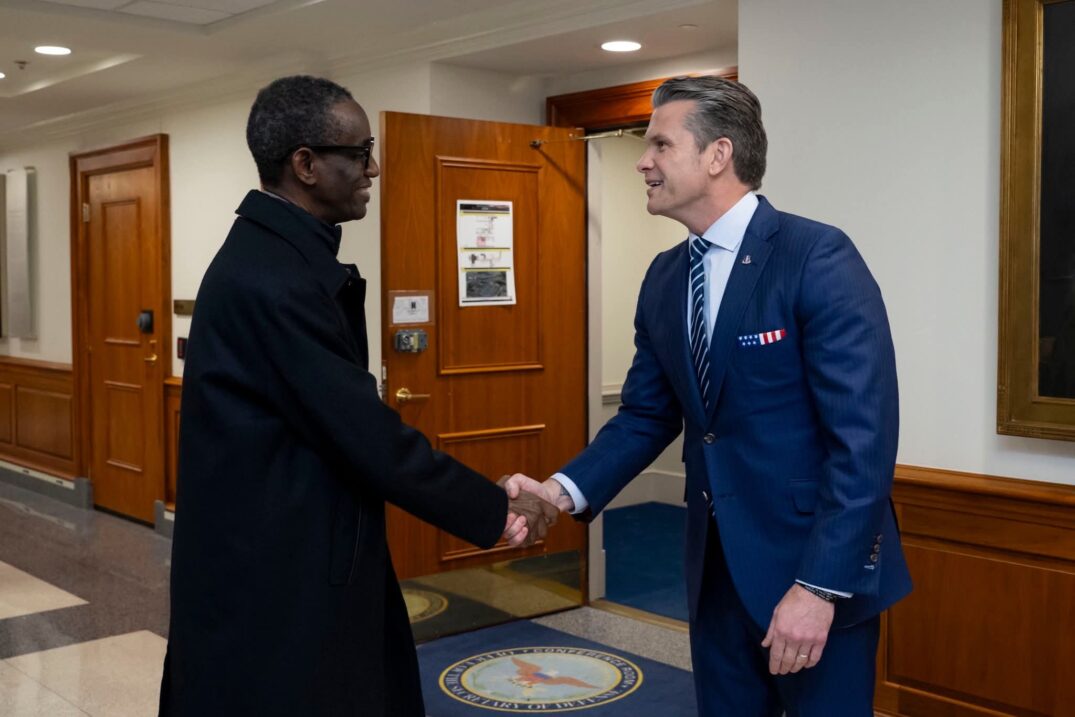
PHOTOS: Pete Hegseth, US war secretary, hosts Nuhu Ribadu in Washington over Nigerian Christian persecution claims (Credit: TheCable)
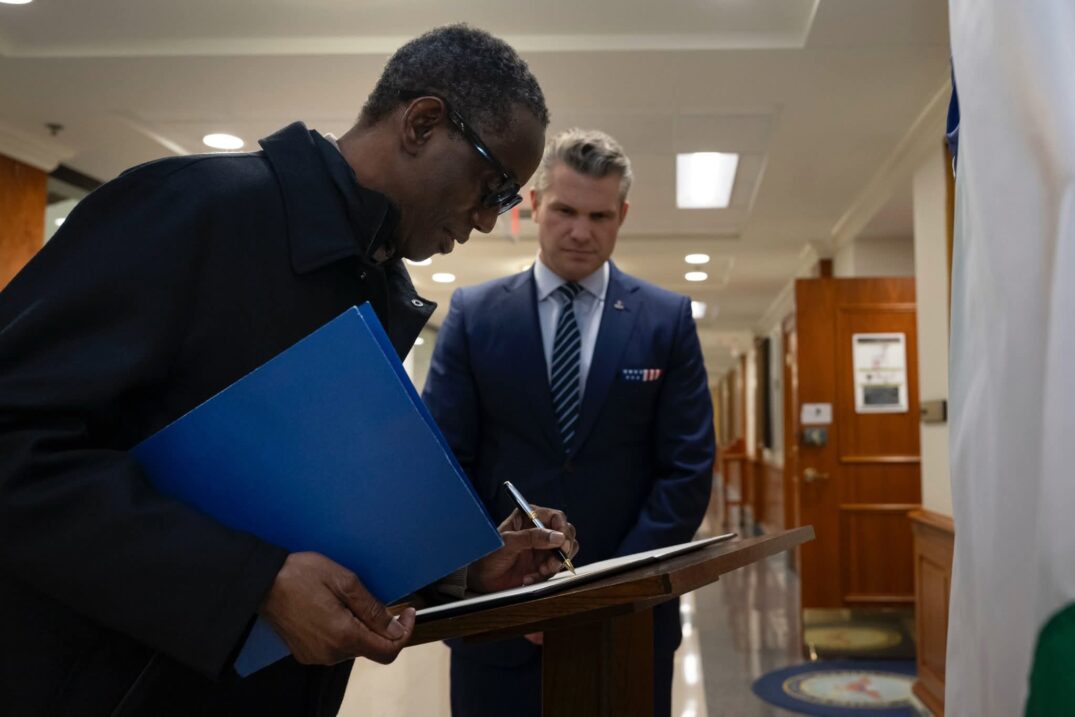
PHOTOS: Pete Hegseth, US war secretary, hosts Nuhu Ribadu in Washington over Nigerian Christian persecution claims (Credit: TheCable)
That being said, the religious dimension cannot be ignored. Islamist extremist groups like Boko Haram have explicitly declared their intention to eradicate Christianity and Western influence from northern Nigeria. Their attacks which are often on churches, Christian schools, and communities are clearly ideological and religiously motivated. These acts fit squarely within the framework of religious persecution, and they contribute significantly to the perception, and reality, that Christians are being singled out.
At the same time, Muslim communities in other parts of Nigeria have also suffered large scale violence, whether from insurgents, criminal gangs, or communal clashes. It therefore mean that insecurity in Nigeria is a national crisis, not just a sectarian one. The country’s weak security institutions, lack of accountability, and the lack of state presence have allowed violence to persist and spread across all divides.
In conclusion, while Christians in Nigeria are indeed disproportionately affected by terrorist and communal violence, the issue cannot be reduced to a simple narrative of religious persecution. Religion is a powerful symbol of identity in Nigeria, and it often amplifies other conflicts over power, land, and resources. A balanced understanding recognizes both realities that Christians are often specifically targeted, and that Nigeria’s broader crisis of insecurity affects all communities. Addressing this challenge requires not only protection for vulnerable religious groups but also a comprehensive effort to tackle the root causes of violence, poverty, corruption, impunity, and the lack of trust between Nigeria’s diverse communities.
Do you think US President Donald Trump should enter Nigeria for the purpose of striking the said terrorists who are decimating Christians?
Calls for foreign intervention in Nigeria, particularly to protect Christian communities under attack, stem from genuine humanitarian concern. The scale of violence such as the terrorist attacks by groups like Boko Haram and ISWAP has devastated thousands of families and left entire regions in fear. However, while the urge to seek decisive international action is understandable, a unilateral U.S. military intervention, even under the banner of protecting Christians, would be problematic and potentially counterproductive for Nigeria and the entire region.
From a policy and sovereignty perspective, Nigeria is an independent nation with constitutional responsibility for its internal security. Any foreign military action on Nigerian soil without the consent of its government would violate international law and Nigeria’s sovereignty. Even a well-intentioned strike could stir up anti-Western sentiment, feed extremist propaganda, and destabilize an already fragile region. History shows that external interventions in complex local conflicts whether in Libya, Afghanistan, or Somalia often produce unintended consequences that outlast the immediate military gains.
Instead of direct military strikes, the U.S. under the Trump administration should focus on strategic partnership and capacity building. This should include intelligence sharing, counterterrorism training for Nigerian forces, humanitarian support for displaced populations, and programs that tackle the socioeconomic causes of extremism.
The U.S. already supports Nigeria through initiatives like AFRICOM and the now defunct USAID; these channels can be strengthened to improve security outcomes without undermining Nigeria’s autonomy as a country.
Furthermore, framing Nigeria’s crisis solely as a “war on Christians” risks oversimplifying a multifaceted conflict. While Christians are indeed disproportionately targeted, many Muslims and other civilians also suffer from the same insecurity. The United States can play a constructive role by encouraging interfaith dialogue which the Nigerian President Bola Ahmed Tinubu have started by consulting with religious and traditional leaders across the country. Also supporting civil society, and pressing for accountability within Nigeria’s justice system. The long-term solution lies not in foreign strikes but in empowering Nigeria’s own institutions to protect all citizens, regardless of faith.
While the moral instinct to defend victims of persecution is commendable, direct U.S. military intervention especially one framed in religious terms would not be the right approach. A sustainable solution requires international cooperation, not unilateral action; strengthening local governance, not bypassing it; and addressing root causes of violence, not merely its symptoms. What Nigeria needs most is partnership.
Is Trump’s intended action, without invitation, not an invasion of the sovereignty of Nigeria?
Yes. Under international law and diplomatic norms, any foreign military action on Nigerian territory without the explicit consent or invitation of the Nigerian government would amount to a breach of Nigeria’s sovereignty. Sovereignty is a foundational principle of the international system, it affirms a nation’s right to control its own territory, manage its internal affairs, and make independent decisions free from external interference.
If a U.S. president, such as Donald Trump, were to authorize unilateral strikes inside Nigeria even with the stated goal of protecting Christians or combating terrorism that action would be interpreted as an unauthorized intervention and therefore an invasion in legal and political terms. Such a move would likely provoke diplomatic outrage, undermine Nigeria’s international standing, and possibly destabilize relations between the United States and most African nations.
Beyond legality, there are serious strategic and political implications. Nigeria is a leading power in West Africa, a key member of ECOWAS, and a country that has long asserted its independence in foreign affairs. Any external military incursion could fuel nationalist backlash, empower extremist propaganda about “Western crusaders,” and complicate regional security efforts. Experience from other conflict zones like Libya and Somalia has shown that foreign intervention without local partnership tends to deepen instability rather than resolve it.
The more effective and lawful approach would be for the United States to support Nigeria through cooperative frameworks like intelligence sharing, joint counterterrorism training, humanitarian assistance, and support for governance reforms that strengthen Nigeria’s capacity to protect its citizens. These methods uphold both the spirit of partnership and respect for Nigeria’s sovereignty.
Do you think there is a hidden reason for intended invasion as touted in certain quarters?
Speculation about “hidden motives” behind any proposed or rumored foreign military intervention in Nigeria is understandable, given the country’s strategic importance and history of external involvement in African affairs. While protecting persecuted Christians or combating terrorism may be presented as the stated reason, observers often suspect that deeper geopolitical, economic, and strategic interests could be the reason for such intentions.
Nigeria is Africa’s most populous nation and its largest crude oil producers. Its position along the Gulf of Guinea makes it a key player in global energy routes and maritime security. Any foreign power, especially the United States, would have strong interests in ensuring stability and influence in such a strategically vital region.
Therefore, some analysts argue that military intervention framed as “humanitarian protection” or “counterterrorism” could also serve broader goals of securing access to natural resources, countering Chinese or Russian influence in West Africa, or projecting U.S. power in a region of growing geopolitical competition.
However, it is important to distinguish between legitimate strategic interests and hidden agendas. In modern foreign policy, great powers often pursue a mix of moral, security, and economic objectives. The challenge arises when humanitarian justifications become a pretext for intervention that undermines local sovereignty or disregards African-led solutions. History offers a cautious example like in Libya in 2011, external powers justified intervention to prevent civilian casualties but left behind a fractured state and regional instability.
That said, there is no concrete evidence that the United States currently intends to invade Nigeria. Much of the speculation likely arises from political rhetoric, media sensationalism, or misinterpretations of U.S. foreign policy debates. Any serious U.S. military engagement would require congressional approval, interagency planning, and diplomatic coordination and all of which are unlikely without Nigeria’s consent.
From a policy perspective, Nigeria’s best safeguard against external manipulation is strong domestic governance and regional cooperation. When a nation is internally stable, transparent, and capable of protecting its citizens, it leaves little room for external actors to justify intervention, whether open or covert.
The most effective defense against both terrorism and unwanted foreign intervention is a stable, just, and united Nigeria.
What do you make of the reported Chinese defense of Nigeria against Trump’s declaration and intention?
The reported defense of Nigeria by China following the U.S. President Donald Trump’s declaration of possible military action against Nigeria has sparked significant international debate. At first glance, China’s reaction appears to be a straightforward affirmation of Nigeria’s sovereignty.
However, beneath that surface lies a deeper mix of strategic calculation, geopolitical rivalry, and competing global visions of how international order should function. When Chinese Foreign Ministry spokesperson Mao Ning publicly rejected Trump’s threat, Beijing emphasized its opposition to “any country using religion or human rights as a pretext to interfere in another nation’s internal affairs or threaten it with force.” This statement aligns with China’s long-standing foreign policy principle of non-interference, a doctrine rooted in the belief that each country has the sovereign right to address its own domestic challenges.
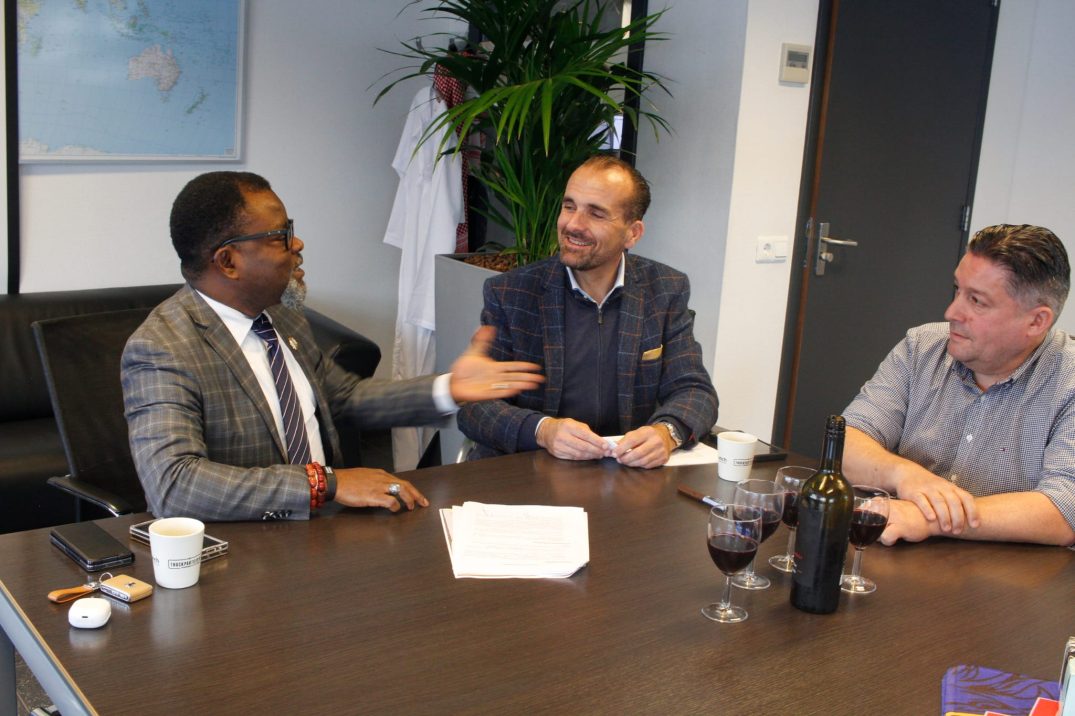
Kleyn Group Chief Executive Officer and Managing Director, Mr. Dave Nijssen, and Operations Manager, Mr. Ronald Happel with Chief Sunny Ofehe during the signing ceremony
By explicitly defending Nigeria, China sent a strong diplomatic message that unilateral military intervention especially one justified on religious grounds would be unacceptable in the international system.
However, China’s defense of Nigeria cannot be viewed purely through an ideological lens. It is also driven by strategic and economic interests. Nigeria is China’s largest trading partner in sub-Saharan Africa and a vital participant in the Belt and Road Initiative. From major infrastructure projects funded by the China Exim Bank to growing energy and technology partnerships, Beijing has significant investments in Nigeria’s stability.
Any U.S.-led military intervention could threaten these interests and disrupt the stable environment China needs to sustain its economic footprint on the continent. Thus, defending Nigeria’s sovereignty also serves as a form of self-protection for China’s strategic investments. At the same time, China’s position highlights a deeper clash of worldviews between itself and the United States.
For Nigeria, this diplomatic exchange presents both opportunities and risks. On one hand, China’s vocal support reinforces Abuja’s position that Nigeria is capable of managing its internal security and that foreign military action would violate its sovereignty. On the other hand, reliance on external backing whether from China, the U.S., or others can also entangle Nigeria in broader geopolitical rivalries that have little to do with its internal priorities.
While China’s defense strengthens the principle of sovereignty, it also raises a critical question: what happens when sovereignty is used as a shield against legitimate humanitarian concerns? Defending national autonomy should not absolve governments of their duty to protect citizens from terrorism, ethnic violence, or religious persecution. China’s position, though diplomatically powerful, offers little in terms of practical solutions to the insecurity that continues to claim Nigerian lives.
Therefore, China’s defense of Nigeria against Trump’s threatened military action is both principled and pragmatic. It upholds the international norm of non-interference and underscores China’s commitment to defending its African partners from Western coercion. Yet, it also reflects a calculated move to preserve its economic interests and expand its influence in Africa’s largest democracy. For Nigeria, the episode serves as a reminder of its growing strategic significance and of the delicate balance it must maintain between safeguarding sovereignty and ensuring the security and dignity of its people.
What diplomatic measures do you think President Bola Tinubu can adopt and take to erase the tag of Nigeria as a ‘country of particular concern’ by the US President?
The classification of Nigeria by the United States as a “country of particular concern” (CPC) for alleged violations of religious freedom carries serious diplomatic and reputational consequences. It implies that the U.S. government perceives systematic, ongoing, or egregious violations of the right to freedom of religion or belief within Nigeria’s borders.
For President Bola Ahmed Tinubu, reversing this designation requires a combination of domestic reforms, strategic diplomacy, and transparent engagement with both international partners and local communities.
First, Nigeria must demonstrate concrete progress in protecting religious freedom and addressing sectarian violence. While the country faces undeniable security challenges, especially in regions affected by Boko Haram, ISWAP, and communal conflicts, the government must show that these are not tolerated or ignored.
This involves strengthening law enforcement capacity to investigate and prosecute religiously motivated violence, ensuring equal protection for all faiths, and publicly condemning any attacks or hate speech that target particular religious groups. When the state takes visible, consistent action to hold perpetrators accountable whether they attack Christians, Muslims, or traditional worshippers, it weakens the narrative that Nigeria tolerates impunity.

Ofehe while addressing the session
Second, President Tinubu should pursue active diplomatic engagement with Washington through both formal and backchannel diplomacy. This can begin with a structured dialogue between Nigeria’s Ministry of Foreign Affairs and the U.S. State Department’s Office of International Religious Freedom.
Nigeria could request a joint review of the evidence and methodology that led to its CPC designation, providing credible counter-data and context for incidents cited in the U.S. reports. Simultaneously, appointing a Special Envoy on Religious Harmony and Interfaith Affairs could help Nigeria institutionalize its commitment to religious tolerance and signal seriousness to international partners.
Third, Nigeria should leverage multilateral diplomacy to demonstrate leadership on religious freedom and coexistence in Africa. Hosting or co-sponsoring regional interfaith peace initiatives under the auspices of the African Union (AU) or the United Nations would portray Nigeria not as a violator, but as a champion of pluralism and tolerance. By transforming from a country under scrutiny into a regional advocate for interfaith harmony, Nigeria could reshape the narrative surrounding its international image.
Fourth, communication matters. The Tinubu administration needs a strategic public diplomacy campaign to articulate the complexity of Nigeria’s security challenges to the global audience. Much of the “CPC” narrative arises from a misunderstanding of Nigeria’s internal dynamics, where violence often stems from ethnic, economic, or land disputes that overlap with religion. Clear, transparent communication backed by credible data, independent reports, and collaboration with civil society can correct misconceptions and demonstrate progress.
Finally, sustained domestic policy reforms will be the ultimate proof of intent. Strengthening judicial processes, supporting interfaith dialogue platforms, investing in education that promotes tolerance, and addressing socio-economic inequality in conflict-prone regions will help reduce the underlying drivers of religious tension. Diplomatic arguments are strongest when backed by tangible domestic achievements.-i9j-
In reality, President Tinubu’s best diplomatic strategy to erase Nigeria’s designation as a “country of particular concern” lies not in confrontation, but in constructive engagement and reform. Nigeria can rebuild trust with the United States and the broader international community. The goal should not merely be to remove a label but to ensure that every Nigerian, regardless of faith, can live in dignity, equality, and security.


